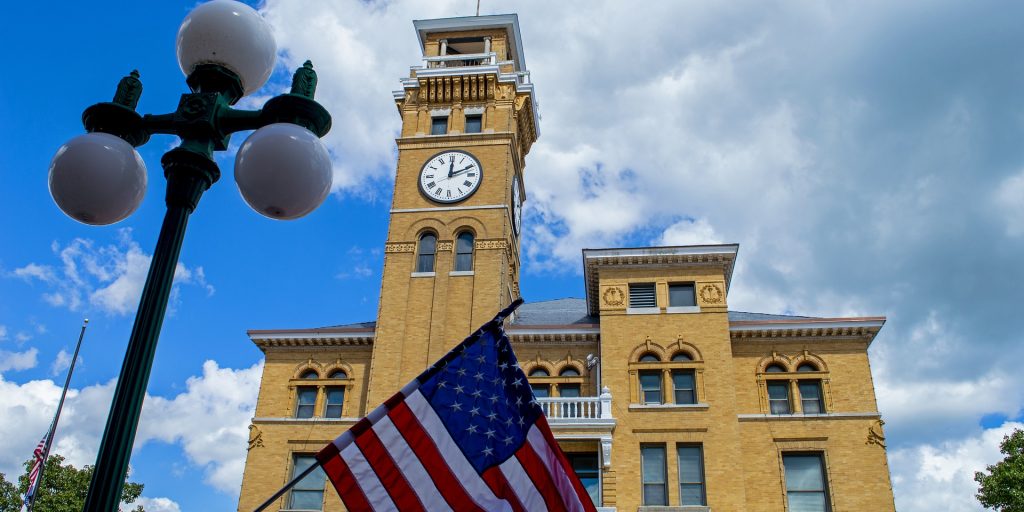Pandemic lessons: Improving your municipality’s continuity and coordination of services after COVID
As COVID recedes, it’s crucial for governments to take stock of what they learned—and update their processes accordingly.
The past 18 months have been trying for governments of all sizes, from small town and village boards to vast cities like New York. As with any crisis, the pandemic exposed—and then worsened—municipal gaps and inefficiencies. And while the pandemic isn’t over, the worst of it is receding. Now, a year and a half after the onset, it’s important to take note of the lessons learned to improve operational efficiencies moving forward.
Municipalities faced all sorts of challenges—one of the greatest being something you might not expect: communication. Specifically, a lack of communication and coordination. Municipal agencies often function in silos, which is less than ideal even in normal times. However, in the case of a long-term emergency event like the pandemic, these silos can make coordinating comprehensive responses extremely difficult.
For example, an agency that serves local senior citizens may not regularly communicate with one that oversees rent regulations. And that regulatory agency probably doesn’t check in too often with those monitoring public health. During the pandemic, all these issues blended: vulnerable seniors, a recession, a rapidly spreading virus. Yet those agency silos remained intact.
Another challenge that strained municipalities: the uncertainty of the pandemic, and a serious lack of experience or preparation for dealing with such uncertainty. Ramping up services in the wake of a natural disaster may be difficult, but at least the parameters are clear. Municipalities know how long a hurricane will last, and which areas will be hardest hit. But that wasn’t the case with COVID, and so agencies were forced to design and provide solutions on a day-by-day basis.
Further, the need for social distancing made delivering services even more difficult, especially because of barriers to accessing the internet, which disproportionately impact low-income communities. Many people access the internet through their phones, yet many services, including schooling, are geared toward those with computers. Additionally, many agencies and service providers have limited technical skills in-house, and so were forced to come up to speed quickly in order to communicate with their constituents and clients.
In the months ahead, it’s crucial that municipalities don’t let these challenges go to waste. Governments must learn from them, update their processes and ensure they’re better prepared in the future. So, where to start?
In terms of communication, many municipalities should rethink their siloed systems and build channels for better collaboration. Each agency should strive to know what the others are working on, and how it may overlap with their own scope. These channels don’t need to be built from scratch, but they do need to create space for cross-sector stakeholders who can provide perspective and insights into opportunities for collaboration and streamlined initiatives.
There are several other learnings worth mentioning, too. For example, the pandemic revealed how taxing a crisis can be on residents’ mental health. And so, municipalities should invest in programs that prioritize mental health and wellness.
Another example: Municipalities need to develop new data capture and analysis capacity to understand evolving situations. Had these systems been in place at the start of the pandemic, governments could have more quickly determined where and how to deploy resources like testing sites, rent assistance, or mental health services. More broadly, municipalities should rely on tracking and evaluation methods in their everyday work. This approach is an incredibly important tool that can measure—and then optimize—the reach, effectiveness and progress of key programs. Comprehensive tracking also allows organizations to understand and address shortcomings more quickly, which supports more sustainable and efficient systems in the long term.
Perhaps the most important lesson is that any crisis—big or small, health-related or otherwise—will affect vulnerable communities more so than any other group. The first step to address this is identifying neighborhoods without adequate access to high-quality schools, parks, public spaces, public transportation and health resources. Then, municipalities need to actively listen to the needs of community members in these neighborhoods and collaborate to enact services and programs that work.
As the pandemic recedes, it’s vital for municipalities to take stock of what they learned and start putting these lessons into practice immediately. Listen to your community. Plan for program sustainability. Think outside the box. Doing so will go a long way in the short-term, helping with further vaccinations and economic recovery measures. And in the long-term, these practices can make government more efficient and effective.
Celeste Frye, AICP is co-founder and CEO of Public Works Partners LLC, a WBE/DBE/SBE certified planning and consulting firm specializing in multi-stakeholder initiatives and building strong connections across the government, nonprofit and private sectors. For more information, visit www.publicworkspartners.com.



















